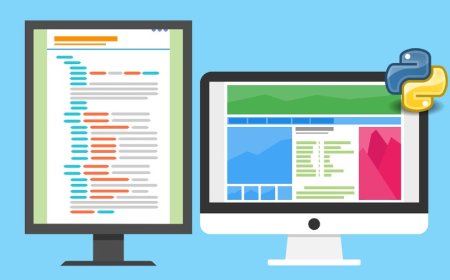Data Science For Social Good: Addressing Real-world Problems
Social Media Marketing in Digital Marketing leverages platforms like Facebook, Instagram, and Twitter to promote brands, engage audiences, and drive business growth.

Data science has become increasingly important in addressing societal issues. By analyzing large amounts of data, it helps us gain valuable suggestions that inform decision-making and move powerful actions. Whether it's improving healthcare or addressing environmental concerns, data science is very important.Using data effectively means finding important patterns in big sets of information. This helps groups and scientists make smart choices based on strong proof, which is very useful for understanding difficult issues, especially in areas that benefit society.Moreover, data science is not confined to just one domain; it is adaptable. It can be utilized in different sectors like healthcare, education, poverty alleviation, and environmental preservation. This adaptability allows us to tackle the general issues faced by societies across the globe in an entire manner.
Data science in social areas can lead to complications related to ethics, privacy, and biased outcomes. When data scientists aim to create models for positive impact, they come across value problems. These Problems involve Getting permission, being transparent about their actions, and responsibly handling data. It is Important to address these problems to show that the benefits of data science do not casually cause problems. Additionally, algorithms used in data science can introduce biases, complicating existing social issues. It is fundamental to identify and rectify these biases in order to prevent Inadvertent damage to particular segments of society.
Challenges in Applying Data Science to Social Issues
Applying data science to solve practical problems is great, but it's not always easy. There are some challenging aspects that can make it a bit difficult.
-
Being Fair to Everyone: One big challenge is making sure that data science doesn't accidentally treat some people unfairly. Imagine a friend sharing cookies, but the cookies only go to a few people. That wouldn't be fair, right? Similarly, data science has to be careful not to leave anyone out or favor some people more than others.
-
Finding Good Information: It's like searching for treasure in a big, messy room. Sometimes, the information we need is scattered and not very clear. Data scientists need to figure out how to gather the best, most reliable data to solve problems. It's like making sure you have the right pieces to solve a puzzle.
-
Keeping Secrets: Just like how you wouldn't want everyone to know your secrets, some data is super private. Data scientists need to make sure they keep people's information safe and don't share it without permission. It's like being a good friend who can be trusted with secrets.
-
Balancing Act: Imagine trying to juggle a bunch of different things at once – it can be tough! Data scientists face a similar challenge in balancing the need for helpful information with the importance of privacy. It's like finding the right mix of ingredients for a tasty recipe.
Data science is like a powerful tool that faces challenges but finds ways to overcome them. By knowing these challenges, data scientists can use their powers for good and benefit everyone.
How can data scientists ensure fairness and equity in their models?
Making fairness and equal treatment for all is of highest importance when utilizing data science to address problems. Let's explore how data scientists can guarantee the fairness and impartiality of their powerful tools.
-
Teamwork Details: Playing a game where everyone has to work together to win. Data scientists do something similar by teaming up with experts from different areas, like teachers, doctors, and community leaders. This way, they get a variety of perspectives to make sure their solutions are fair and make sense for everyone.
-
Checking for Biases: Ever notice how your favorite game might have certain rules that give someone an advantage? Well, data can have its own rules that might not be fair. Data scientists need to be like detectives, always checking to make sure their tools don't favor one group over another. It's like making sure everyone has an equal chance to win the game.
-
Testing, Testing: You're making a new recipe. Before serving it to everyone, you taste it to make sure it's just right. Data scientists do something similar by testing their models. They run trials to see if their solutions are fair and work well for everyone. It's like making sure the recipe doesn't need more salt or sugar to be just perfect.
-
Listening to Everyone: Planning a surprise party. To make it awesome, you'd want to know what each friend likes, right? Data scientists do the same by listening to the concerns and ideas of different groups in the community. This helps them make sure their solutions are thoughtful and don't leave anyone out.
-
Being Transparent: Playing a game where everyone knows the rules, and there are no secrets. Data scientists aim for transparency, which means being open about how their tools work. This way, everyone can understand what's happening and trust that the solutions are fair.
-
Adapting and Improving: Riding a bike for the first time. You might wobble a bit, but with practice, you get better. Data scientists learn from their mistakes and keep improving. If they find out their tools are not as fair as they thought, they go back, fix things, and try again. It's like getting back on the bike until you can ride smoothly.
-
Understanding the Big Picture: Putting together a big puzzle. Each piece is important, and when they all fit together, you see the whole picture. Data scientists need to understand the big picture of the community they're helping. This way, they can make sure their solutions work well for everyone and don't miss any important pieces.
So, making sure data science is fair is a bit like being a good friend or playing a fair game – everyone gets a chance, and the rules apply to everyone equally. By following these steps, data scientists make sure their powerful tools are making the world a better place for everyone, one fair solution at a time.
Data scientists handle privacy and consent
Understanding how data scientists handle privacy and consent is like knowing the rules of a game to play it right.
-
Respecting Secrets: Just like you wouldn't tell your friend's secret to everyone, data scientists keep people's information private. They follow strict rules to make sure that personal details stay safe and don't end up where they shouldn't.
-
Permission Matters: Think of it like asking for permission before borrowing someone's toy. Data scientists do the same – they get permission before using anyone's data. This way, they make sure people are okay with their information being used to solve problems.
-
Being a Good Guardian: A babysitter taking care of a bunch of kids. The babysitter has to make sure everyone is safe and happy. Data scientists act like guardians for information, making sure it's used responsibly and doesn't cause harm.
-
Clear Communication: Ever played a game with confusing rules? It's not fun. Data scientists make sure to explain what they're doing with the data in a way that everyone can understand. It's like making sure everyone knows the rules of the game before playing.
-
Fixing Mistakes: Sometimes, we make mistakes in games, and that's okay. Data scientists are human too! If they realize they made a mistake, they work quickly to fix it and make things right. It's like saying sorry when you accidentally break a friend's toy.
Data scientists are like good players in the game of using information. They follow the rules, ask for permission, keep secrets, and ensure everyone understands what's happening. By doing this, they play the data game fairly and responsibly, ensuring that everyone's information is treated with respect and used for good reasons.
Combining data science and social good can make the world a better place. While there are challenges and ethical concerns, using data science responsibly can help solve important problems. By being transparent about how we use data, ensuring everyone benefits, and striving for improvement, we can make a positive impact on societies worldwide. The ongoing development of data science for social good has the expected to bring about important changes, and by following these principles, We are moving towards a brighter future for everyone.




























































